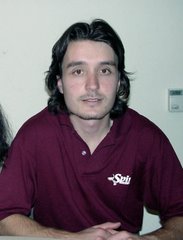In today's post I would like to refer to my understanding of the gap between EDUCATION (ACADEMIA) and the WORKPLACE. I agree with some people that education is not necessarily useful and efficient if it has not been applied (anyhow) to the world of work in practical terms. Yet, I believe that all the skills that you have developed throughout your years of education could be found helpful into the world of work one day.
In this sense, I am referring back to a comment that I made earlier in one of my previous blogs. Not always people study a particular discipline, because they believe that they would find themselves solely performing a job in this particular field. Essentailly, EDUCATION has always been a tool for acquiring KNOWLEDGE and SKILLS, and people tend to speculate today that specific education should facilitate only one kind of job. In other words, if you studied B.Com, it necessarily means that you should ultimately end up into a career of accounting or finance.
No, I do not agree. As Roy Blumenthal mentioned before, as Andrew Hofmeyr indicated earlier this week and as Lisa Garson emphasised today, education is in fact a constant process of training, a process of rediscovering your skills and then applying them to the job market. In similar terms, Lesley Emanuel stated earlier that every day is a job-interview day.
In other words, education is in fact a constant process of traning and re-developing your skills, a process of building up your strenghts and abilities in various sectors. When the ancient Greek philosopher, Plato, wrote his dialogues, he made it clear that primarily the purpose of EDUCATION is to provide you with KNOWLEDGE about yourself and about your relationship to the world. He also mentioned that EDUCATION and WORK are not two separate entities, but they are rather inter-linked and you always employ what you have learned before to various practical tasks. Thus, when you are given a certain type of job, the skills that you have learned before will come across in one way or another.
In this sense, I believe that EDUCATION and the WORKPLACE are not separated form each other, they rather co-exist. And as we have discussed throughout our various sessions so far, one does need to look solely at the jobs available that suit his (her) degree and qualifications, but to look at the jobs that suit your strenghts and qualities. In this sense, Ijeoma picked it up very well throughout her blog, illustrating Andrew Hofmeyr' point:
"Expose your qualities, not your qualifications"!
For that reason, I draw particular attention to these few points. All of us, the participants in this program, should remember that all that we have learned so far will not be wasted and it will be useful for us in one way or another. And we should all try and apply those SKILLS and KNOWLEDGE to the world of work somehow. Ultimately, the job-searching process is a process of testing your strenghts and abilities and not necessarily a process of finding whatever suits your degree qualifications.


